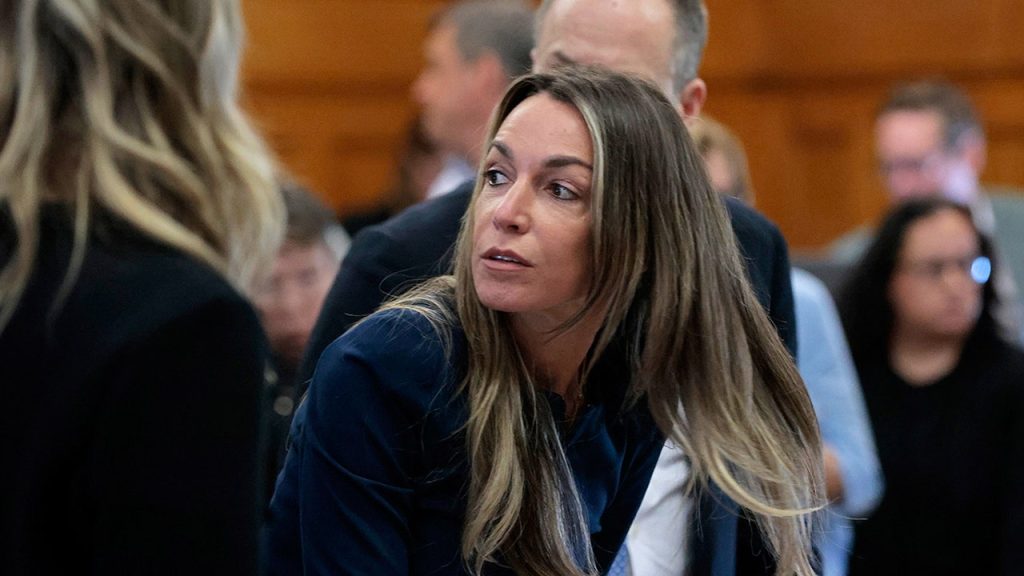A Massachusetts judge has ruled to exclude references to an unrelated botched murder investigation from the ongoing trial of Karen Read, who is facing multiple charges including second-degree murder in connection with the death of her boyfriend, Boston police officer John O’Keefe. The trial has drawn significant public attention, particularly because of the complex circumstances surrounding both cases involved with local law enforcement. The implications of police procedure and investigative rigor continue to be focal points during the trial proceedings.
| Article Subheadings |
|---|
| 1) Overview of the Trial Proceedings |
| 2) Details Surrounding O’Keefe’s Death |
| 3) The Defense Arguments |
| 4) Issues in Police Investigation Procedures |
| 5) Community Impact and Concerns |
Overview of the Trial Proceedings
The resumption of Karen Read’s trial marks a critical juncture in a high-profile legal case. Read is being retried after accusations of killing John O’Keefe emerged in January 2022. The death was originally labeled a point of contention, leading to investigations by both state and federal authorities. The courtroom has seen various controversies, including a prior mistrial due to a juror deadlock, which sets a tense stage for the current proceedings. As of now, the trial is under the scrutiny of both public and legal analysts, looking to see how the prosecution uses previous learnings to secure a conviction.
Details Surrounding O’Keefe’s Death
On January 29, 2022, John O’Keefe was found dead in a suburban setting during severe weather conditions. Initial reports by Canton Police treated his death as a medical emergency before the case took a darker turn, leading to a homicide investigation. Circumstances of the night involved alcohol and a heated argument, according to some testimonies. Moreover, Matthew Farwell, a former police officer, was arrested in connection with a different murder that raised questions about police competency in investigating O’Keefe’s death. Witnesses noted the chaotic scene, with law enforcement reported to have mishandled crucial evidence, calling the initial response into further question.
The Defense Arguments
The defense team, led by attorney Alan Jackson, has made extensive efforts to create reasonable doubt regarding Read’s involvement in O’Keefe’s death. They argue that the evidence, which allegedly links Read to the crime, is circumstantial at best. Key points include the fact that she denies having struck him with her vehicle, asserting instead that the police have mishandled evidence and conducted a flawed investigation. During the trial, defense attorneys have actively highlighted the lack of hard evidence proving Read’s culpability, pointing toward inconsistencies and flaws within the police’s gathered information.
Issues in Police Investigation Procedures
Critical to the trial’s developments are the numerous missteps by law enforcement, which have come under intense scrutiny. Reports indicate that important evidence was not only mishandled but also improperly collected and stored. For instance, investigators collected physical evidence using makeshift methods, such as placing evidence in grocery bags rather than appropriate forensic containers. This has led to a significant discourse on the necessity for better training and adherence to protocol for police departments. Community voices have echoed concerns about systemic failures within the Canton Police Department, prompting calls for an audit of the department’s practices.
Community Impact and Concerns
The ongoing trial has left an indelible mark on the local community, with residents expressing concern over how police mishandled evidence and anecdotes of alleged incompetence have fueled public distrust. The intertwining nature of the two murder cases involving Read and Sandra Birchmore has further amplified anxiety and skepticism surrounding law enforcement. Calls for police reform and accountability resonate strongly among community members, with many seeking improved training and competence in dealing with investigations involving lethal outcomes. The outcome of this trial could serve as a pivotal moment for local law enforcement as it may set precedents not only in procedural integrity but also in public trust.
| No. | Key Points |
|---|---|
| 1 | Karen Read’s retrial focuses on her alleged connection to the death of officer John O’Keefe. |
| 2 | The case spotlighted concerns over police procedures and evidence handling in investigations. |
| 3 | Defense claims suggest significant errors in the police investigation undermine the prosecution’s case. |
| 4 | Community response centers on calls for police reform, especially regarding evidence handling. |
| 5 | The trial highlights the complexity of legal proceedings affecting both the accused and law enforcement agencies. |
Summary
The retrial of Karen Read has elicited considerable attention, not only because of the gravity of the charges she faces but also due to the broader implications surrounding police practices and community relations. As evidence of potential misconduct mounts, it becomes increasingly clear that this trial is about more than just the fate of an individual; it is a reflection of systemic issues within local law enforcement agencies. The outcome may pave the way for significant discussions around accountability and procedural reform in policing.
Frequently Asked Questions
Question: What charges is Karen Read currently facing?
Karen Read faces multiple charges, including second-degree murder, drunken driving manslaughter, and fleeing the scene of a deadly accident.
Question: Why was the previous trial for Karen Read deemed a mistrial?
The first trial ended in a mistrial due to a deadlocked jury, indicating that they could not reach a unanimous decision regarding her guilt or innocence.
Question: What issues have been identified in the police investigation of John O’Keefe’s death?
Investigations revealed that evidence was mishandled and improperly collected, raising concerns over the efficacy of the police procedures in such serious cases.


